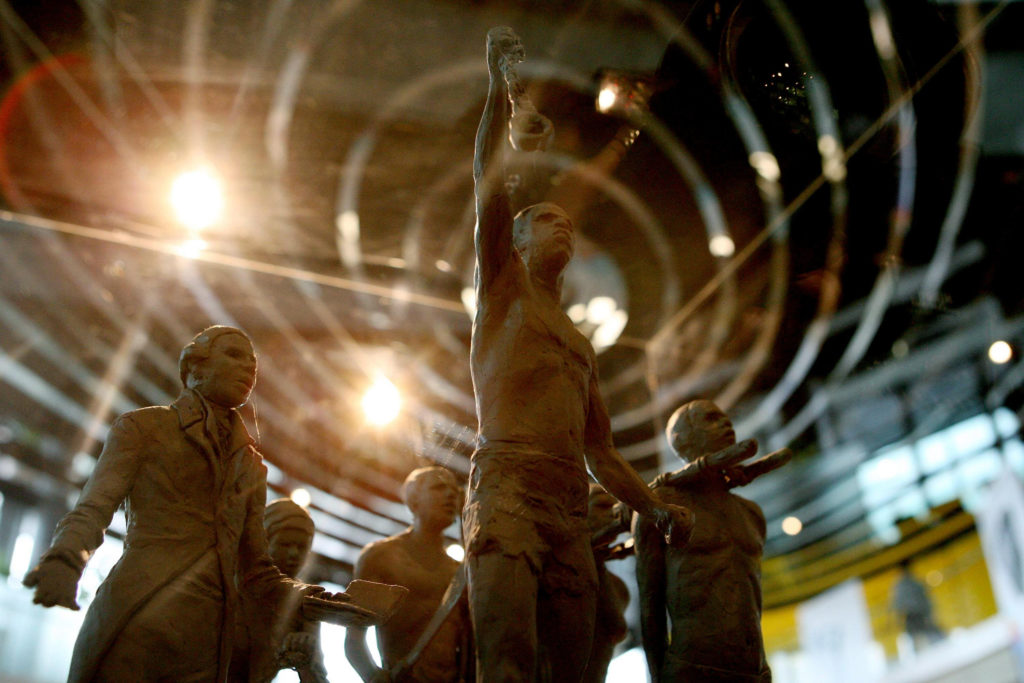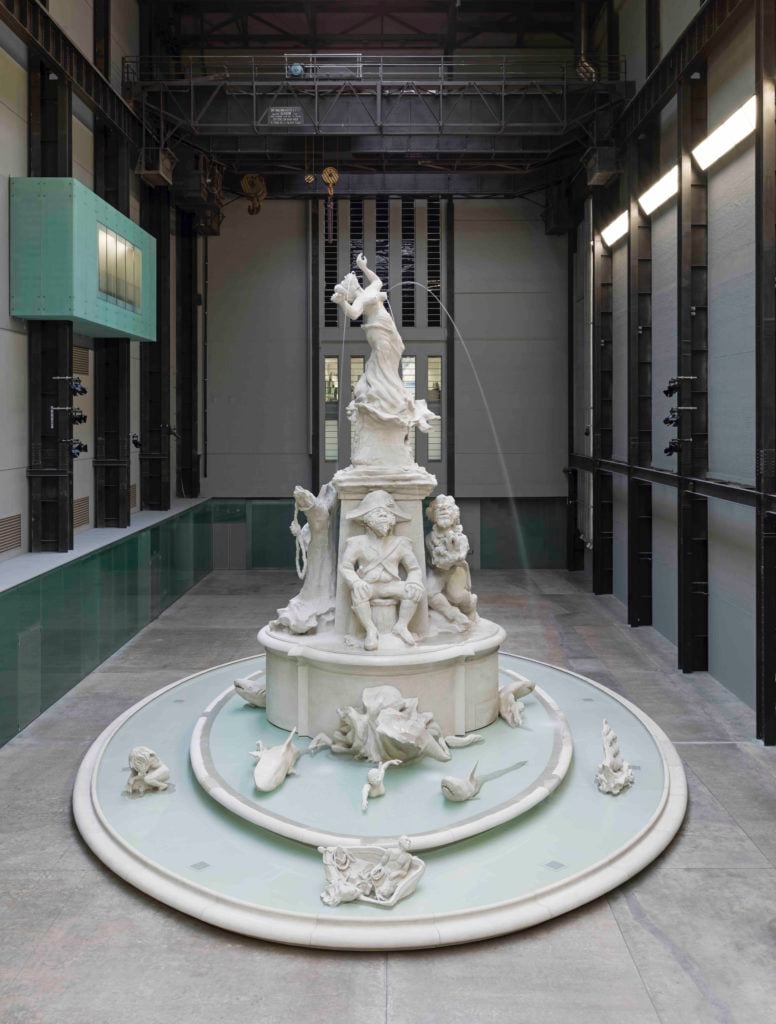Art World
Boris Johnson Has Broken His Promise to Fund a Memorial to the Victims of Slavery, Citing Insufficient Funds
The prime minister had formerly applauded the project back in 2008, when he was the mayor of London.

The prime minister had formerly applauded the project back in 2008, when he was the mayor of London.

Caroline Elbaor

The future of a proposed memorial for the victims of the transatlantic slave trade is in doubt, after the UK government declined last month to provide public funding for its realization.
The recent denial of funds is in direct contradiction to current Prime Minister Boris Johnson’s 2008 endorsement for the project. Johnson, who was then the mayor of London, even praised the prospective location of Hyde Park for the statue, calling it “a fitting site for a permanent memorial to the millions who lost their lives.”
Now, Johnson’s government is withholding funding despite claiming, via James Younger, the minister for communities and faith, that the government still believes in the project because “slavery and the slave trade were amongst the most appalling tragedies in history”.
The memorial, designed by Les Johnson, would depict a group of six figures—each of whom symbolizes a part of the history of slavery—led by an enslaved African man raising a pair of shackles above his head. “What is certain is that far into the future, the name at the bottom of the sculpture, Memorial 2007, will be of little significance,” the artist wrote in a statement about his proposed work. “It will not be the artist, whatever his culture, color or creed, but the memorial itself and those to whom it is dedicated, that will live on….I do not want to create anything that is lessened by being subservient to today’s whim and fashion. My sole aim is to create a thing of truth and beauty that serves its subject well.”
Though permission to mount the statue in the Rose Garden of Hyde Park was indeed granted, the lack of government funding presents a massive challenge to complete the project, which would cost roughly £4 million ($5,258,640) to produce. At the moment, the charity behind the memorial has raised a mere £70,000 ($91,954) through donations.
In comparison, the Holocaust Memorial located beside the Palace of Westminster has been allocated £75 million ($98,522,625) in state funding—nearly 19 times what it would cost to produce the slavery memorial. While both tragic events are obviously worthy of attention, backers of the slavery sculpture worry that the hesitance to fund the latter memorial is due to the fact that slavery “was our own atrocity,” adding that “it is easy to take the moral high ground about someone else’s atrocity,” according to the Guardian.

Installation view of Kara Walker’s Turbine Hall Commission 2019, Fons Americanus. ©Tate photography, Photo by Matt Greenwood.
The interest in public monuments to victims of the transatlantic slave trade has only risen in recent years. Kara Walker’s working fountain Fons Americanus, currently on view at Tate Modern’s Turbine Hall, was inspired by the Victoria Memorial in front of Buckingham Palace, and explores the history of the slave trade within and between Africa, America, and Europe, using water as a key facet in the project.
“There’s something subversive about having water included in your work as a black artist,” Walker told the Guardian, “because you’re obviously dealing with issues around the transatlantic slave trade.”
As for the slavery memorial whose funding is now being withheld, a spokesperson for the ministry of housing, communities, and local government simply said there was no money available, adding that “the government supports the International Slavery Museum, which acts as a hub for resources on as well as examining aspects of historical and contemporary slavery.”